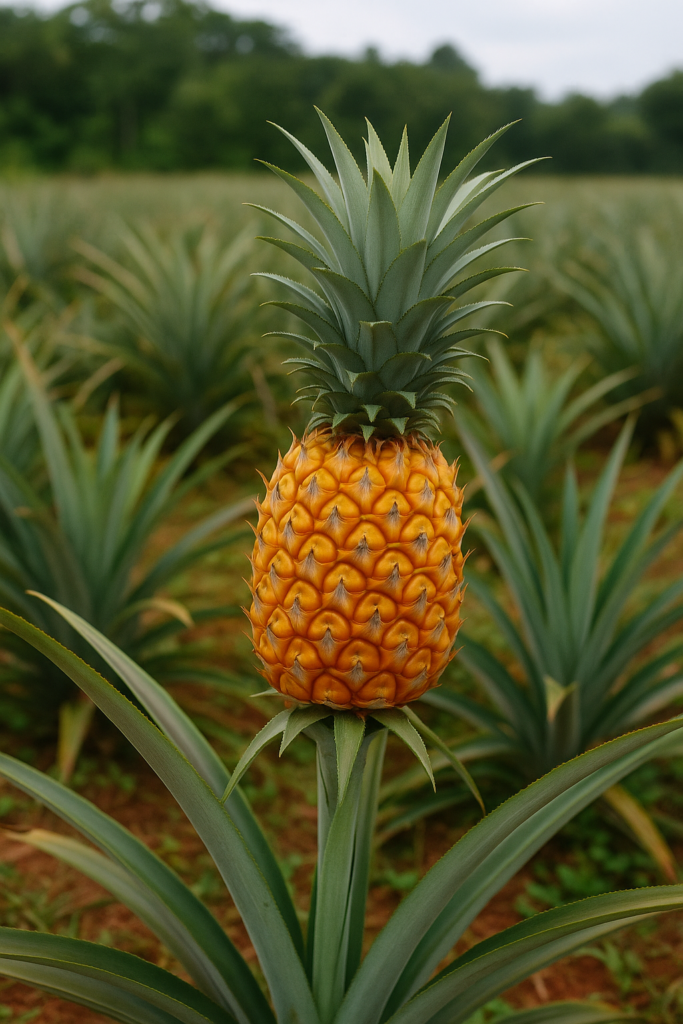In the lush green hills of Tripura, the Queen Pineapple grows with a distinct golden-yellow color, a captivating aroma, and a sweetness that sets it apart.
Awarded the Geographical Indication (GI) tag in 2018, Tripura’s Queen Pineapple has placed the northeastern state on the national and international fruit map.
It is recognized for:
- Higher sugar content (Brix value between 14–16)
- Low fiber and high juiciness
- Unique fragrance and taste
According to the Tripura Horticulture Department, more than one lakh metric tonnes of pineapples are produced annually, with Queen Pineapple forming the majority.
Why a GI Tag Matters
A GI tag is a certification that a product possesses certain qualities unique to its geographical origin.
For Queen Pineapple, this means:
- Legal protection under intellectual property laws
- Exclusive market identity for Tripura farmers
- Higher export potential to international markets like Dubai, Bangladesh, and the UK
The GI tag is not just a label. It is a tool that ensures farmers receive premium prices, boosts state pride, and helps protect traditional farming practices.
Tripura: The Pineapple City of India
With over 8,800 hectares of land dedicated to pineapple farming, Tripura is often called the Pineapple City of India.
Key reasons for Tripura’s dominance include:
- Perfect climatic conditions: Tropical humidity and well-distributed rainfall
- Traditional, chemical-free farming methods
- Government support for marketing and exports
In fact, in 2018, Tripura even exported its first consignment of Queen Pineapples to Dubai — a significant step toward global branding.
Sweet Success: Farmers’ Growing Fortunes
Farmers cultivating Queen Pineapple have seen their incomes rise in recent years.
Earlier, pineapples were sold at Rs 5–10 apiece in local markets. Today, GI-tagged Queen Pineapples fetch between Rs 20–30 per fruit in domestic markets and even higher for exports.
With the help of the state government and central initiatives like the Agriculture Export Policy, Tripura farmers are:
- Building cooperatives for better price bargaining
- Adopting modern storage and transport methods
- Expanding into international markets with quality certifications
The success of Queen Pineapple farming is not only about higher incomes — it’s about preserving local biodiversity and empowering small farmers. The Tripura government plans to:
- Set up more pineapple processing units for products like juice, jam, and canned slices
- Increase exports to Southeast Asia and the Middle East
- Promote eco-tourism through pineapple farms and harvest festivals
With rising demand for organic and GI-certified produce globally, Queen Pineapple’s future looks promising.


